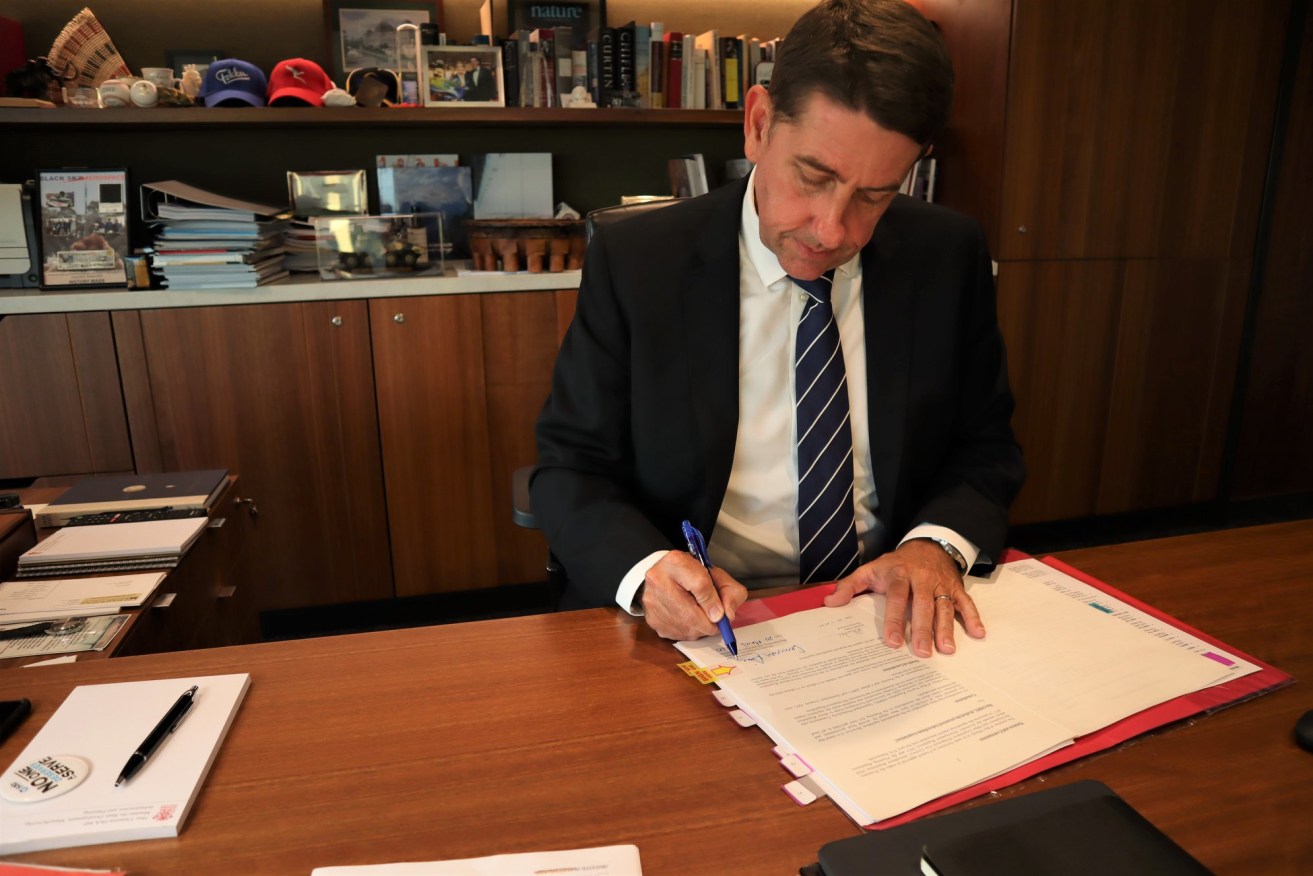Unions fear austerity plan at heart of Queensland budget rebuild
The public service pay freeze may be a taste of things to come, a parliamentary committee has been told.

Treasurer Cameron Dick. (Photo: Source: Facebook)
With a new Treasurer in Cameron Dick, the state budget deferred indefinitely and pandemic continuing, the Palaszczuk Government has yet to detail any plan to rebalance the books.
Yet the Queensland Government is under pressure to continue the publicly funded economic stimulus after September when the Commonwealth plans to end income support measures and unemployment is likely to soar.
The Queensland Teachers’ Union, in a submission to a parliamentary committee inquiry into the Government’s COVID-19 response, said school staff had risen to the challenge during the pandemic.
But the recently legislated pay freeze for 2020-2021 would withhold $100 million from the pockets of teachers and principals, which could have supported their households or been spent in the community.
“There is no doubt that the economy is in trouble, that unemployment and underemployment have doubled, and that the revenues of the state budget have been significantly affected,” the QTU said.
“But this has historically proved to be bad policy and the State Government has not made an economic or budget case why this is not so now. If there had been clarity about the freeze, time and an arguable case, the QTU would have balloted its members. But there has not been.”
As the Government seeks to boost the economy, and help business recover from restrictions and bans, the QTU has called for greater public investment in schools and education. A long-term infrastructure program would help create and sustain jobs, as occurred after the Global Financial Crisis, and provide an acknowledgement that the economy was struggling before the pandemic.
“The QTU believes that notions of restoring the economy to pre-COVID-19 policy settings ignore the fact that, for many Queenslanders, the economy was not working even before this crisis,” the submission states.
“Thirty years of neoliberal trickle-down economics have led to rising inequality, an erosion of the social safety-net, record low wage growth, and the rise of insecure employment. Trickle-down economics fails to adequately recognise the basic principle that money in workers’ pockets drives business, creates jobs and lifts living standards.”
The Queensland Nurses and Midwives’ Union also cautioned against governments “taking austerity measures in the aftermath of the pandemic”.
“Research shows that countries that took deep public spending cuts following the global financial crisis have seen increases in poverty and inequality and health consequences and also resulted in decreased capacity to respond effectively to the pandemic crisis,” the QNMU wrote in its submission.
The Together branch of the Australian Services Union called on the Palaszczuk government to “alter or abolish” its existing budgetary principles of paying down debt, having competitive taxation arrangements, aiming for an operating surplus and a sustainable number of public servants. It expressed concern those principles – although not strictly adhered to – might create an austerity program.
“There are signs from the Queensland Government through their actions to freeze public sector wages that this austerity argument is holding sway in Queensland as well,” the Together union argued.
“This is of serious concern as it suggests the Queensland Government could be going down a path of cutting or restricting spending on public services and projects. Together suggests that a better approach is to continue the initial response of the government in seeking to provide more certainty of employment and increase spending to ensure Queenslanders are able to keep supporting Queenslanders and keeping the doors to shops and services open, wherever we are.”
The Queensland Council of Unions used its submission to call for more job security and flexibility for public servants, and state-funded infrastructure projects to stimulate the economy. It has also warned against government functions being privatised or outsourced, or further budgetary cuts.
“There is no evidence that an austerity agenda has ever led to a reduction in public debt nor that this is a good thing for the economy overall,” the QCU argued in its submission.
“Instead, by introducing measures that restrict the growth of the economy, unemployment increases and demand is lowered, in turn leading to low levels of consumer expenditure and further declines in business confidence.”
Dick, who plans to give an economic update in September, inherited falling revenue and pandemic-specific tax concessions, and has said that any future borrowing would be targeted at economic stimulus.












